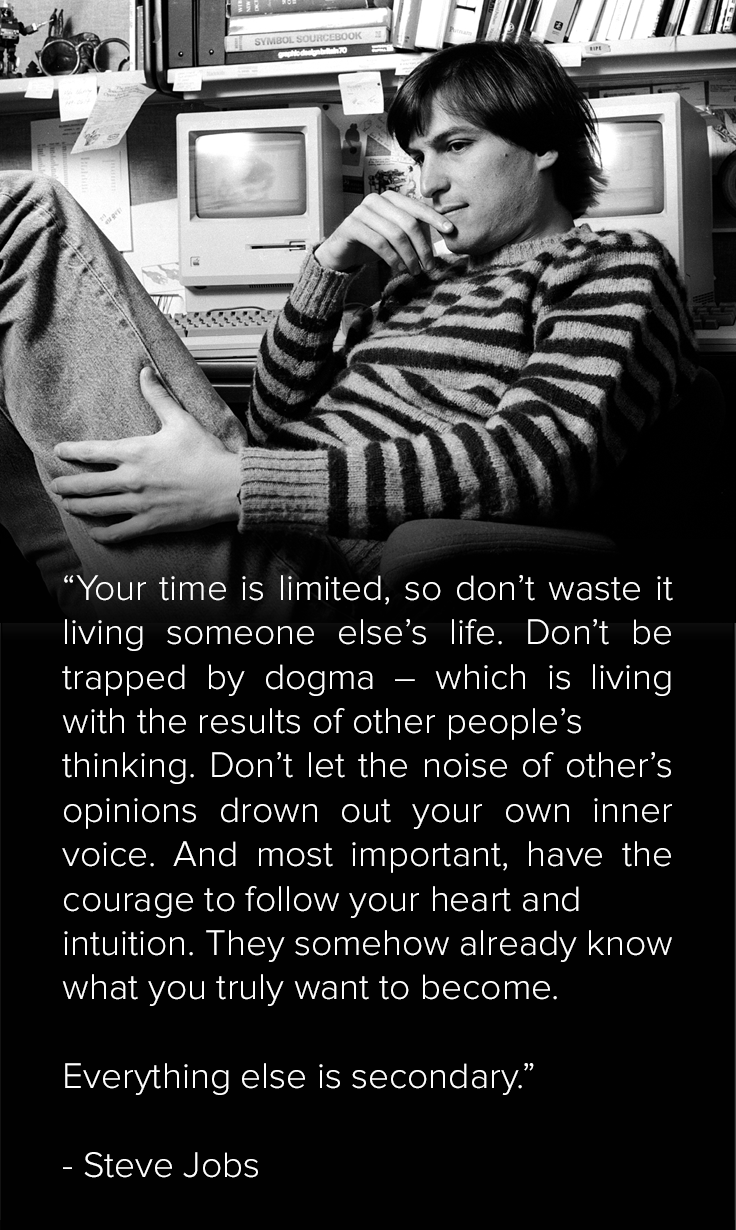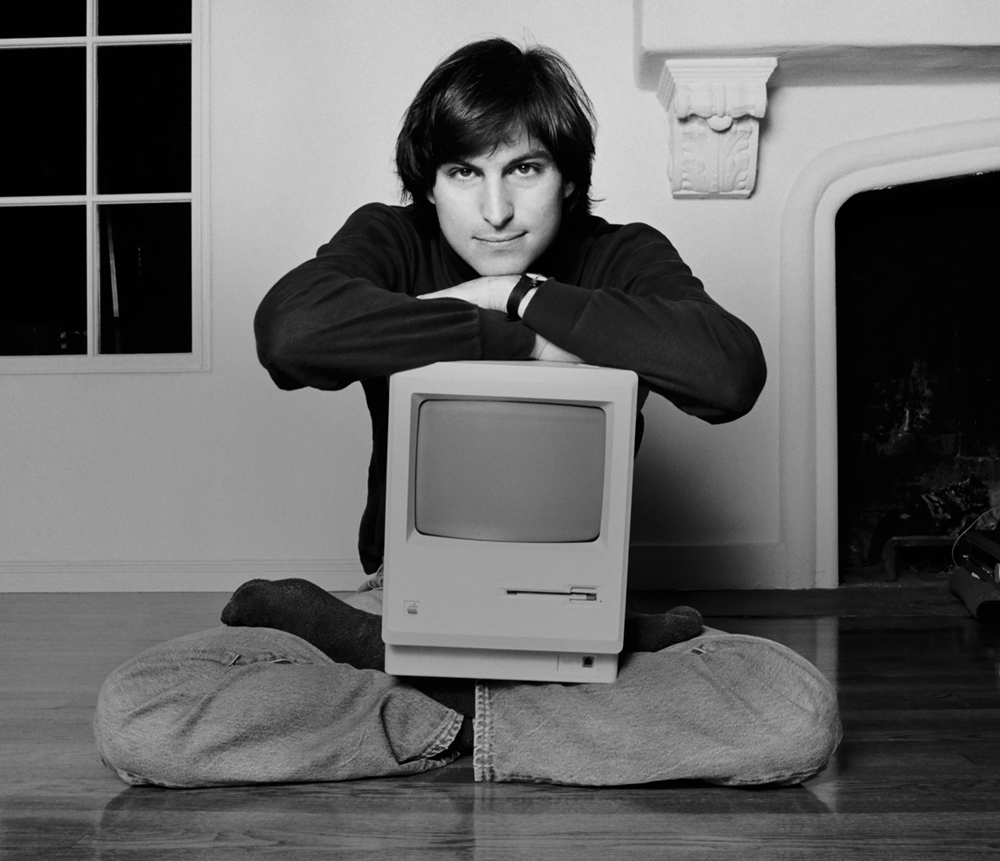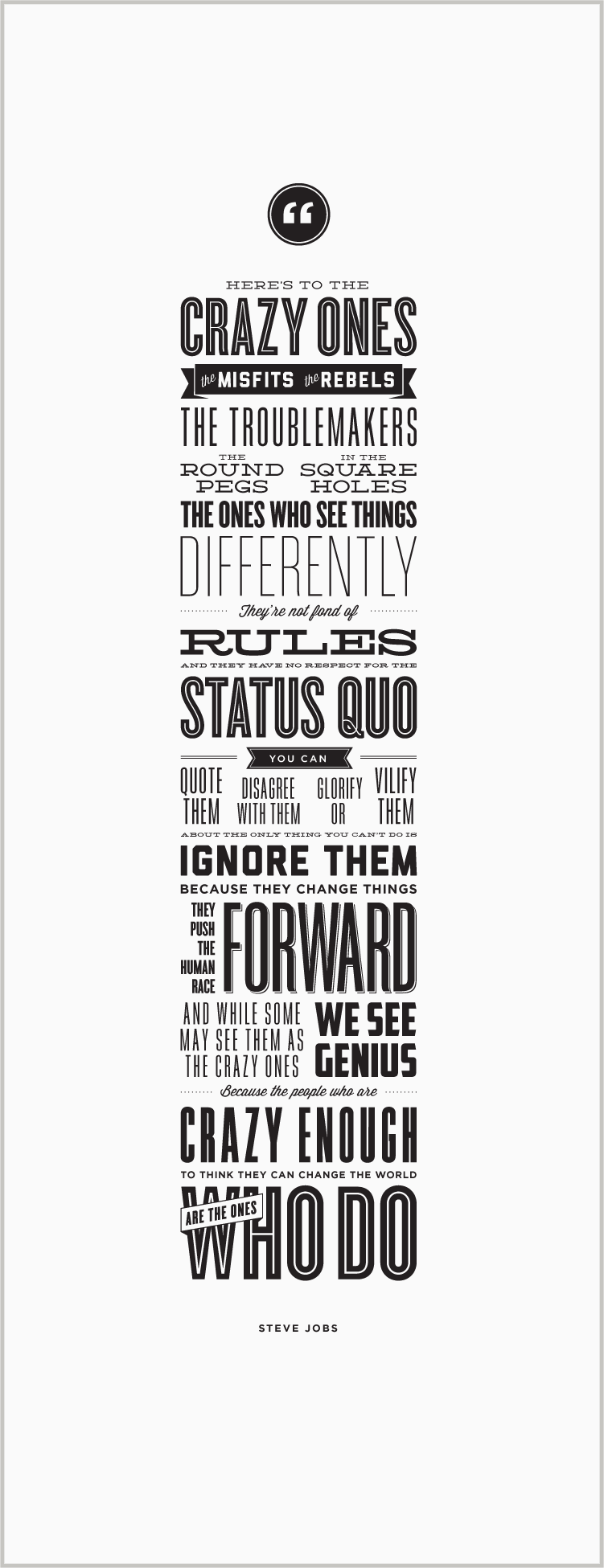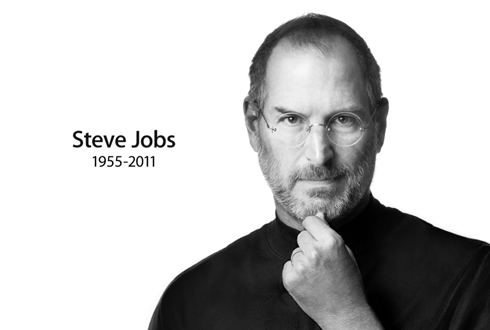
Tag: Steve Jobs
The computer that changed everything – Macintosh

Thirty years ago, Apple introduced the Macintosh with the promise to put the creative power of technology in everyone’s hands. It launched a generation of innovators who continue to change the world. This 30‑year timeline celebrates some of those pioneers and the profound impact they’ve made.
Explore the 30 years time its just beautiful with so many stories that touched people lives and the way they work.
Happy Birthday Mac
46 Seconds on Life from Steve Jobs
The world as Steve Jobs saw it:
When you grow up you tend to get told the world is the way it is and you’re life is just to live your life inside the world. Try not to bash into the walls too much. Try to have a nice family, have fun, save a little money.
That’s a very limited life. Life can be much broader once you discover one simple fact: Everything around you that you call life was made up by people that were no smarter than you and you can change it, you can influence it, you can build your own things that other people can use.
Once you learn that, you’ll never be the same again.
Here’s To The Crazy Ones “Steve Jobs”

Well here’s a reminder don’t be afraid to see things differently.
The now iconic quote debuted in a 1997 television commercial for Apple Computer. The text was said to have been partially written by then Apple CEO Steve Jobs (along with Rob Siltanen and Ken Segall). He embodied the characteristics in this quote arguably better than anyone in history. Today it lives on as a mantra for artists, inventors, entrepreneurs and innovators around the world.
” I simply loved this fantastic letterpress poster.”
RIP Steve Jobs

“[Y]ou can’t connect the dots looking forward; you can only connect them looking backwards. So you have to trust that the dots will somehow connect in your future. You have to trust in something — your gut, destiny, life, karma, whatever. This approach has never let me down, and it has made all the difference in my life.” – Steve Jobs
Thanks for showing that what you build can change the world Steve Jobs. We will miss your magic.
Design is?
“Design is not just what it looks like and feels like. Design is how it works.â€Â – Steve Jobs
Steve Jobs: Flash is No Longer Necessary!! what you think?

Steve Jobs recently posted a long letter on Adobe Flash, why Apple has decided not to support it on the iPad, iPhone and iPod touch.
The letter is a clear, in-depth view in all of Flash’s defects from Apple’s point of view, and while we’re sure it will be dissected over and over again in the upcoming days (especially the part about Flash not being open), you have to admire its frankness.
In short, Steve Jobs claims Flash drains the battery of mobile devices; it’s not very good for multi-touch operation; and its performance, reliability and security are all shoddy. It’s also a proprietary system, and while Jobs admits that their mobile OS is also proprietary, he claims that web standards should be open, like HTML5, CSS and JavaScript.
Most importantly Apple doesn’t want “a third party layer of software [to] come between the platform and the developer.†Finally, Jobs concludes, Flash is a relic. “Flash was created during the PC era –- for PCs and mice,†he says, “but the mobile era is about low power devices, touch interfaces and open web standards –- all areas where Flash falls short.â€
It’s a long discussion and i love adobe flash since long time. what you think, Do you think flash will survive in next years? Write us? i like to hear from you.
vivek
In Japan, Cellphones Have Become Too Complex to Use

An interesting short report via Wired that people in Japan feel that phone become too complex with the features they have it. Japan may be in a culture of spec sheets. Where consumers go to electronics stores to buy a cellphone, they frequently line up the specifications side by side to compare them before deciding which one to buy. Some of the famous Japanese mobile companies are NTT DoCoMo, KDDI, SoftBank and they make 5 % of global mobile phone sales, and rest all of those sales are just domestic.
- Japanese handsets have become prime examples of feature creep gone mad. In many cases, phones in Japan are far too complex for users to master.
- “There are tons of buttons, and different combinations or lengths of time yield different results,'” says Koh Aoki, an engineer who lives in Tokyo.
- Experimenting with different key combinations in search of new features is “good for killing time during a long commute,” Aoki says, “but it’s definitely not elegant.”
- Japan has long been famous for its advanced cellphones with sci-fi features like location tracking, mobile credit card payment and live TV. These handsets have been the envy of consumers in the United States, where cell technology has trailed an estimated five years or more. But while many phones would do Captain Kirk proud, most of the features are hard to use or not used at all.
- “Some people care about quality, but first and foremost it’s about the features,” says Nobi Hayashi, a journalist and author of Steve Jobs: The Greatest Creative Director. He estimates that the average person only uses 5 to 10 percent of the functions available on their handsets.
The most important thing for any mobile company whether it is a product or services, is to provide unique user experience to end users.”Cellphones are now a days becomes an integral part of life “People are always using them and holding them, even in the middle of a meal anytime anywhere”.
vivek
